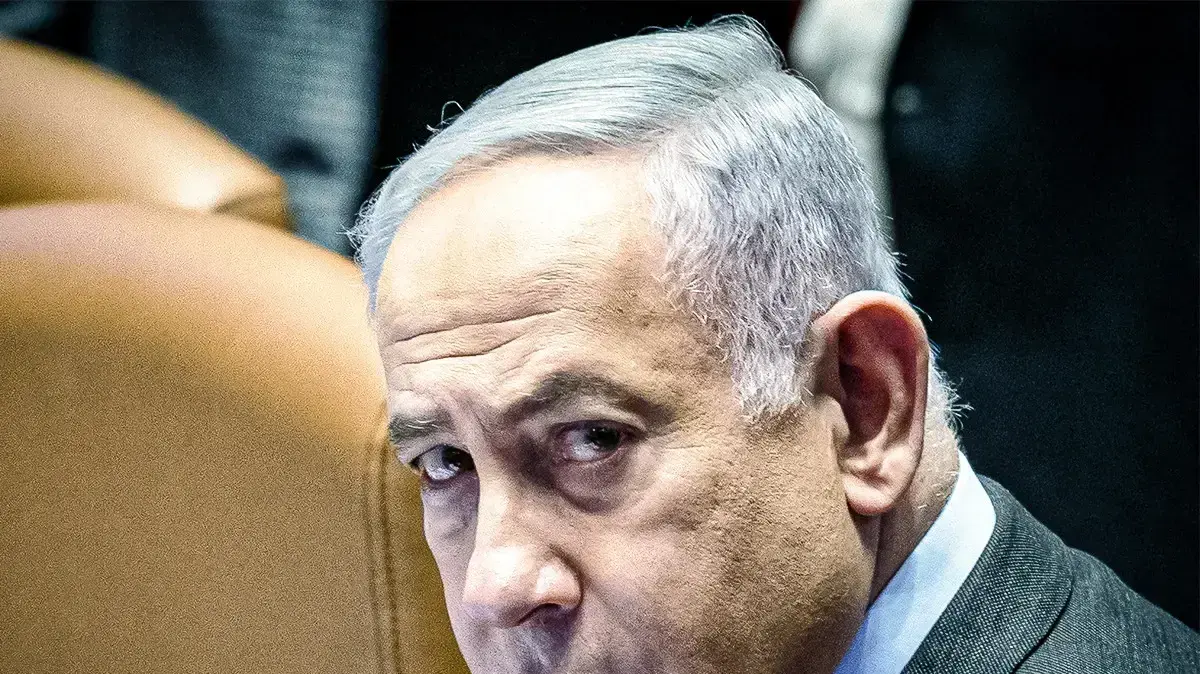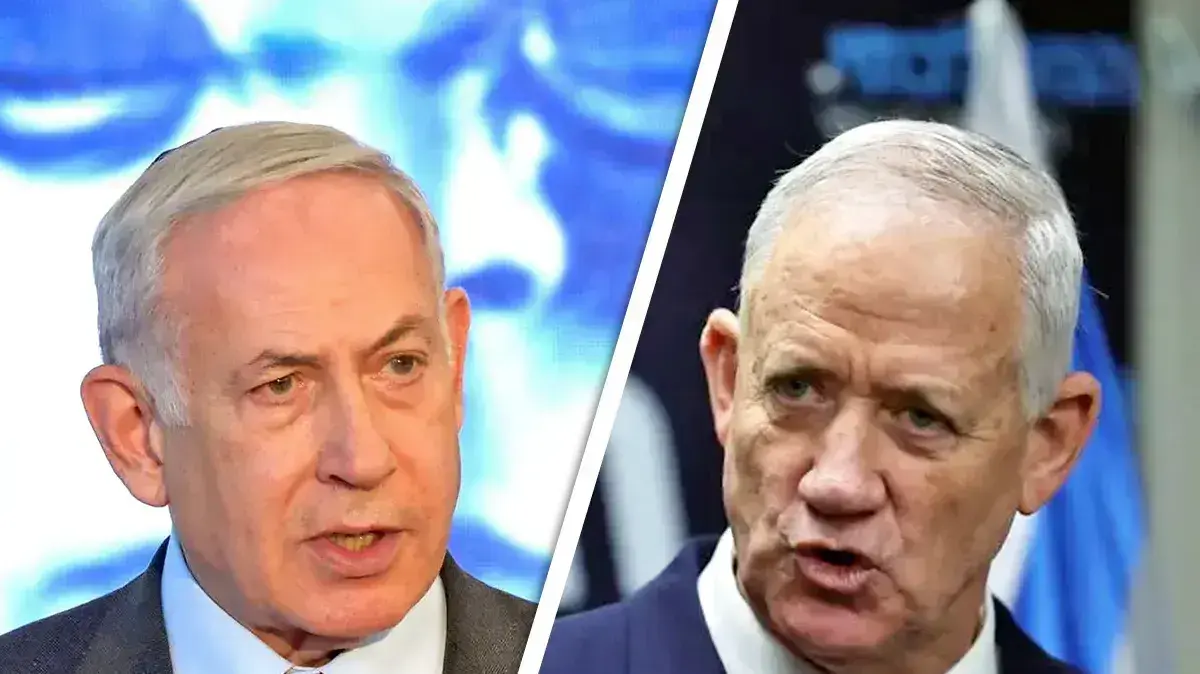Ethiopia's underground churches in danger, according to UNESCO 1:01
(CNN) -
"Abiy, Abiy," the crowd chanted, waving Ethiopia's tricolor flag and cheering as the country's new prime minister, dressed in a white blazer with gold trim and grinning, greeted a packed basketball stadium. at the University of Southern California in Los Angeles, part of a whirlwind tour of three cities in the United States to attract the diaspora.
It was July 2018, just three months after Abiy Ahmed was named the leader of the second most populous country in Africa, and his star was rising both at home and abroad.
The emotion arose in an almost religious fervor around the young politician, who promised to bring peace, prosperity and reconciliation to a troubled corner of Africa and a nation on the brink of crisis.
But even in the optimistic early days of the Abiy government, as it launched a series of ambitious reforms: freeing thousands of political prisoners, lifting restrictions on the press, hosting banned exiles and opposition parties, appointing women In his cabinet, opening the country's tightly controlled economy to new investment and negotiating peace with neighboring Eritrea, Berhane Kidanemariam had his doubts.
The Ethiopian diplomat has known the prime minister for almost 20 years, and forged his friendship with him while working in the communication team of the ruling coalition and later as general director of two state news organizations, while Abiy was in military intelligence and later headed Ethiopia's cybersecurity agency INSA. Before working at Ethiopia's Ministry of Foreign Affairs, Kidanemariam ran the country's national broadcaster, EBC, and said Abiy was on its board of directors.
In a recent telephone interview, Kidanemariam said that, like many Ethiopians, he had hoped that Abiy could transform the country's fractious politics and bring about genuine democratic change.
Yet she found it difficult to square her vision of the man she met in 2004, whom she described as an intelligence officer hungry for power and obsessed with fame and fortune, with the portrait she is painting of a visionary peacemaker from humble origins. .
Prime Minister Abiy Ahmed greets the assembled Ethiopian diaspora at an event in Washington, DC, in July 2018.
In 2018, Kidanemariam was serving as Ethiopian consul general in Los Angeles and said he helped organize Abiy's visit.
advertising
When Kidanemariam, who is from Ethiopia's northern Tigray region, came to the stage to introduce his old friend and colleague to the crowd, he said he was greeted with boos from audience members: from the Woyane podium ", and other ethnic insults. He expected Abiy, who preached a political philosophy of inclusion, to reprimand the crowd, but said nothing. Later during lunch, when Kidanemariam asked him why, he said that Abiy had told him: "There was nothing to correct": "There was nothing to correct."
One of the ironies of a prime minister who came into office promising unity is that he has deliberately exacerbated hatred between different groups, "Kidanemariam wrote in an open letter in March, announcing that he was leaving his post as deputy head of mission. at the Ethiopian embassy in Washington, DC, protesting the month-long Abiy war in Tigray, which has sparked a refugee crisis, atrocities and famine.
Kidanemariam told CNN that he believed Abiy's goal had never been "reform, democracy, human rights, or freedom of the press. It's just about consolidating power for himself, and getting money out of it ... We can. call it authoritarianism or dictatorship, but he's actually getting to be a king. "
"By the way," he added, "the problem is not just for the Tigrines. It is for all Ethiopians. Everyone is suffering everywhere."
In an email sent to CNN, Abiy spokeswoman Billene Seyoum described Kidanemariam's characterization of the prime minister as "unfounded" and a "reflection."
How they captured on video this massacre in Ethiopia 4:26
'The epitome of hell'
Much has changed since Abiy accepted the Nobel Peace Prize in November 2019, telling an audience in Oslo, Norway, that "war is the epitome of hell."
In less than two years, Abiy has gone from being the darling of the international community to becoming an outcast, condemned for its role in a protracted civil war that, according to many testimonies, bears the stamp of genocide and has the potential to destabilize the wider region of the Horn of Africa.
Abiy receives the Nobel Peace Prize during a ceremony in Oslo, Norway, in December 2019.
The 45-year-old man's fall from grace has confused many observers, who wonder how they could have been so wrong.
But Ethiopian diplomats, analysts, independent journalists, acquaintances and others who have closely followed his career say that even at the height of "Abidjan," there were warning signs.
The 2019 Nobel Peace Prize goes to the Prime Minister of Ethiopia, Abiy Ahmed
Critics say that by blessing Abiy with a series of international endorsements, the West not only failed to see - or deliberately ignored - those signs, but gave him a blank check and then turned a blind eye.
"Shortly after Abiy was awarded the Nobel Peace Prize, he lost his appetite for internal reform," Tsedale Lemma, founder and editor-in-chief of Addis Standard, an independent monthly news magazine based on the United States, told CNN. in Ethiopia, on a Skype call.
"He considered it a pass to do what he wants."
The war in Tigray is not the first time he has used that pass, he said, adding that since Abiy came to power with the platform to unify the Ethiopian people and their state, he has mercilessly consolidated control and alienated regional actors. critics.
Lemma has covered Abiy's rise for the Addis Standard, which was briefly suspended by Ethiopia's media regulator in July and was one of the first critics of his government when few sounded the alarm. Days after Abiy received the Nobel Prize, he wrote an editorial in which he warned that the initiatives for which he had been recognized: the peace process with Eritrea and the political reforms in Ethiopia, had bypassed a key actor, the Tigray People's Liberation Front (TPLF), and they were in grave danger.
The TPLF had ruled Ethiopia with a heavy hand for decades, overseeing a period of stability and economic growth at the cost of basic civil and political rights. The party's authoritarian rule sparked a popular uprising that eventually forced Abiy's predecessor, Hailemariam Desalegn, to resign. Abiy was appointed by the ruling class to bring about change, without disturbing the old political order. However, as soon as he came to power, Abiy announced the reorganization of the ruling coalition that the TPLF had founded, the Ethiopian People's Revolutionary Democratic Front, or EPRDF, which was made up of four parties, into a single new Prosperity Party. , ostracizing the TPLF.
The appointment of Abiy was intended to defuse tensions.
Instead, his push for a new pan-Ethiopian political party made some regions fear that the country's federal system, which guarantees significant autonomy to ethnically defined states like Tigray, would be threatened.
The tigrinos weren't the only ones worried.
In Abiy's home region, Oromia, and in other administrative areas, people began to demand self-government.
Soon, the government began to relapse into the authoritarian practices that Abiy had renounced: violent repression of protesters, imprisonment of journalists and opposition politicians, and postponement of elections on two occasions.
Ahmed Soliman, a Chatham House researcher and Horn of Africa expert, said Abiy's reform plan also raised expectations among groups with conflicting agendas, further increasing tensions.
"Abiy and his government have rightly been blamed for implementing uneven reforms and increasing insecurity across the country, but to some extent, some of it was inherited. The ethnic and political divisions that exist in the country. country have very deep roots, "he said.
Tensions reached a boiling point in September 2020, when the Tigrinos challenged Abiy by holding a vote that had been delayed due to the pandemic, triggering a series of recriminations that led to open conflict in November 2020.
Last July, in the midst of the war, Abiy and his party won a landslide victory in a general election that was boycotted by opposition parties, marred by logistical problems and excluded many voters, including all those from Tigray, a crushing disappointment to many who had high hopes for the democratic transition that Abiy promised three years ago would come true.
Election officials count ballots at a polling station in the city of Bahir Dar, Ethiopia, in June.
"He sees himself as a Messiah, as a chosen one, as someone who is destined to 'Make Ethiopia great again', but this country is falling apart," Lemma said, adding that the folly of the international community was to fall. to swallow the tale Abiy presented to them about him: "a contemporary post-ethnic capitalist," in his desperation for a success story. "
A monumental failure of analysis
Yet many Ethiopians are reluctant to blame Abiy for the ruin of the country.
Before the June elections, Addis Ababa residents told CNN that they believed Abiy had inherited a disaster from the previous regime and had always faced an uphill battle to push through reforms, an assessment shared by some regional experts.
"Many people were hopeful that the liberalizing changes, after those years of protests against the government and all the state violence in response, would [...] mark a moment when Ethiopia would begin to do politics more peacefully. But that thinking overlooked some of Ethiopia's major problems and contradictions, "said William Davidson, Ethiopia Senior Analyst at the International Crisis Group.
"There was always a huge challenge ahead for Abiy, and for everyone. The mere promise of a more plural political system did not necessarily resolve the competing nationalisms, opposing views and bitter political rivalries."
In recent months, Abiy has tried to dodge international condemnation by promising to protect civilians, open access to humanitarian aid to prevent famine, and expel Eritrean troops, who have supported Ethiopian forces in the conflict and are accused of some of the most horrific atrocities in Tigray, promises that US officials say he has failed to keep. After the United States issued sanctions in May, the Ethiopian Foreign Ministry accused him of meddling in the country's internal affairs and failing to understand the challenges that lie at the local level.
As international opinion turns against Abiy, the prime minister's office maintains that it is not concerned about the deterioration of his reputation; its supporters increasingly blame the West for the crisis the country is going through. "The prime minister does not have to be the darling of the West, the East, the South or the North," Abiy spokeswoman Billene Seyoum told reporters in June. "It is enough that I defend the Ethiopian people and the development of the nation."
But it is difficult to reconcile the government's narrative with reality.
Putting aside the overwhelming loss of life and destruction within Tigray, the war has eroded Abiy's aggressive development plans and derailed the country's economic trajectory, experts say.
Ethiopia's economy had grown nearly 10% over the past decade, before slowing down in 2020, dragged down by a combination of the COVID-19 pandemic, debt and conflict.
The war has also drained the national coffers, decimated much of the country's industry, and eroded its reputation with foreign investors and financial institutions.
A house damaged in fighting in the Tiger city of Wukro, when Ethiopian forces aligned with the government entered in March.
"From my point of view, I think there was a monumental failure of analysis, internationally," said Rashid Abdi, a Kenya-based analyst and researcher specializing in the Horn of Africa, including himself in that group.
"I think people have not understood the complex nature of the transition in Ethiopia, and especially have not appreciated the complex side of Abiy, who was not a sunny and smiling guy. Underneath he was a much more calculating figure, and even Machiavellian. , which in the long run I think will push the country down a much more dangerous path. "
"We should have started to recognize some of the red flags quite quickly. A lot of complacency is what has brought us here," he added.
The seventh king of Ethiopia
During her inauguration speech in Parliament in 2018, Abiy made a point of thanks to her mother, a Christian from the Amhara region, who said she had told her at the age of seven that despite her modest background, one day he would be the seventh king of Ethiopia.
The comment was met with a round of laughter from members of her cabinet, but Abiy's belief in her mother's prophecy was no joke.
Abiy addresses the nation's parliament in Addis Ababa following his inauguration ceremony in April 2018.
"In the initial stages of the war, actually, he spoke openly that this was God's plan, and that it was a kind of divine mission for him. This is a man who first thing in the morning, instead of meeting With his top advisers, he would meet with some of his spiritual advisers, these are pastors who are very powerful now in a kind of 'kitchen cabinet', "said Abdi.
But the most obvious of the red flags, according to many, was Abiy's surprise alliance with Eritrean President Isaias Afwerki, for which he ended up winning the Nobel Prize.
Critics of Abiy claim that what cemented his status as a peacemaker on the world stage was based on a sham, and that the alignment with Eritrea was yet another effort to consolidate his power, paving the way for both sides to wage war against his mutual enemy, the TPLF.
Shortly after the Eritrea-Ethiopia border was reopened in 2018, reuniting families after 20 years, it was closed again.
Three years later, Eritrean troops operate with impunity in Tigray, and there is little sign of lasting peace.
Dozens of civilians were killed in Ethiopia by invading Eritrean troops, CNN investigation revealed
In response, the Abiy spokeswoman rejected this claim, calling it a "toxic narrative."
Mehari Taddele Maru, Professor of Governance and Migration at the European University Institute, who was skeptical of the peace deal from the start, a highly unpopular view at the time, believes that the Nobel Prize Committee's endorsement of Abiy has contributed to the current conflict.
"I am strongly of the opinion that the Nobel Prize Committee is responsible for what is happening in Ethiopia, at least in part. They had reliable information; many experts sounded the alarms," Mehari, who is from Tigray, told CNN.
"The Committee based its decision on a peace agreement that we point to as a false way out, a peace not only not achieved but perhaps unattainable, and an agreement that was not destined for peace but for war. What he [Abiy] did with Isaias it was not destined to bring peace. He knew it, Isaiah knew it. They were basically working to execute a war, to wall up the South and North Tigray carefully by ostracizing a political party first. "
The most palpable and lasting impact of the award, according to several analysts and observers, was that any criticism of Abiy was stopped.
The personality he cultivated, cemented in part through his many early accolades (he was named African of the Year in 2018, one of Time's 100 Most Influential People, and one of Foreign Policy's 100 Global Thinkers in 2019) captured the imagination of Ethiopians, the great diaspora of the country and the world.
Many now feel betrayed, having lost any optimism about the future of the country, but others remain determined to preserve that impressive image of Abiy, reluctant to see what is happening.
"When the war started in November, the international community was very committed to the idea of Abiy Ahmed as a reformist, and they did not want to give it up," says Goitom Gebreluel, a Horn of Africa researcher from Tigray, who was in Addis Ababa. at the beginning of the conflict.
"I had meetings with several diplomats before the war and it was obvious that the war was coming, and what they were saying was: 'you know, he still has this project, we have to let him realize his political vision,'" he said.
"To this day, I think not everyone is convinced that he is an autocrat."
Eleven underground churches in Ethiopia at risk from Tigray fighters, Unesco warns
Now, with Ethiopia facing a "man-made" famine and a seemingly endless war, Abiy finds himself alone, largely isolated from the international community and with a shrinking cadre of allies.
Abiy's early advocates and supporters say that he not only deceived the world, but also his own people, who are now paying a heavy price.
In his open letter announcing his resignation, Kidanemariam wrote of Abiy: "Instead of keeping his initial promise, he has led Ethiopia down a dark path of destruction and disintegration."
"Like so many others who believed that the prime minister had the potential to lead Ethiopia to a bright future, I am filled with despair and anguish at the direction our country is taking."
Ethiopia

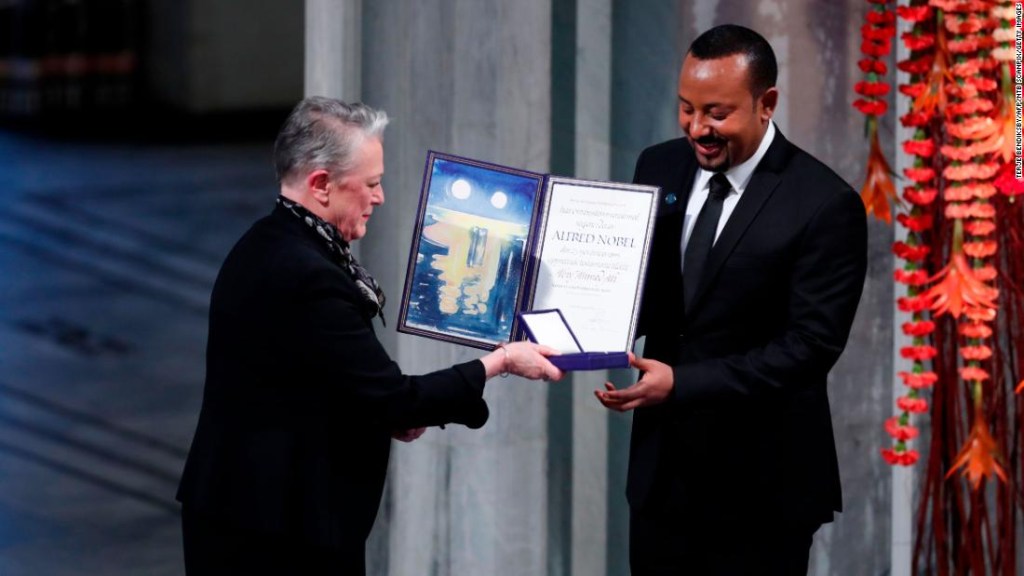
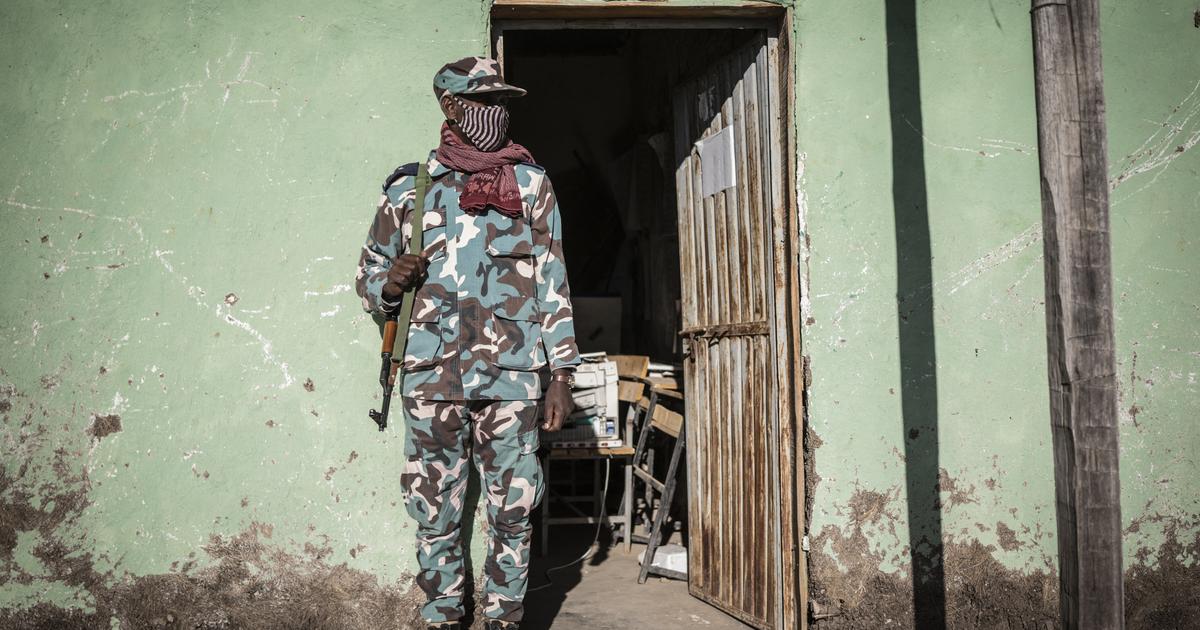

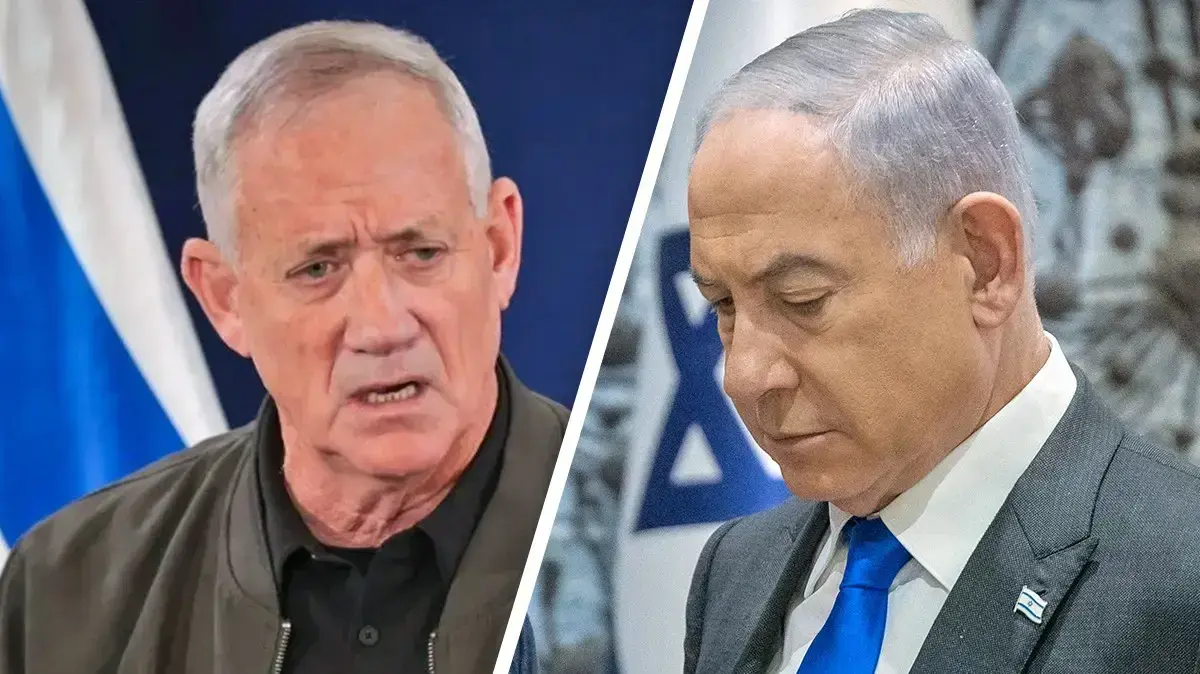
/cloudfront-eu-central-1.images.arcpublishing.com/prisa/VVSSPDPOMZBR5PRFFXV7LLVB3U.jpg)

